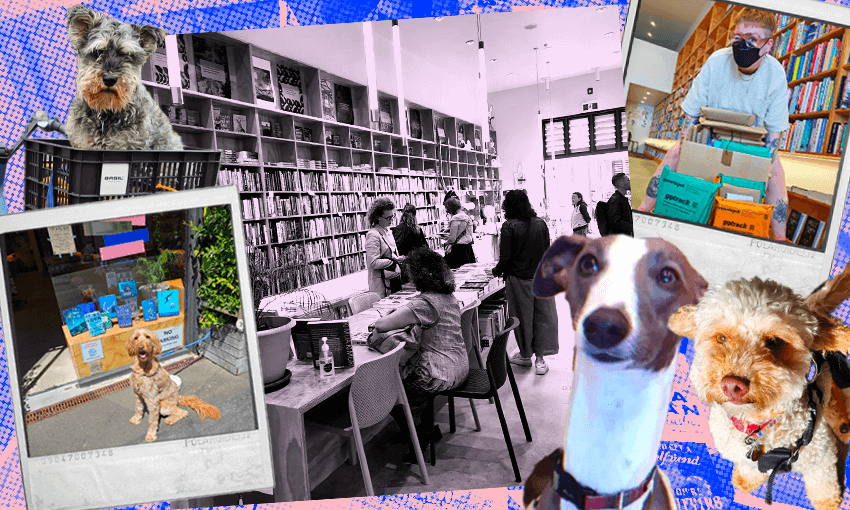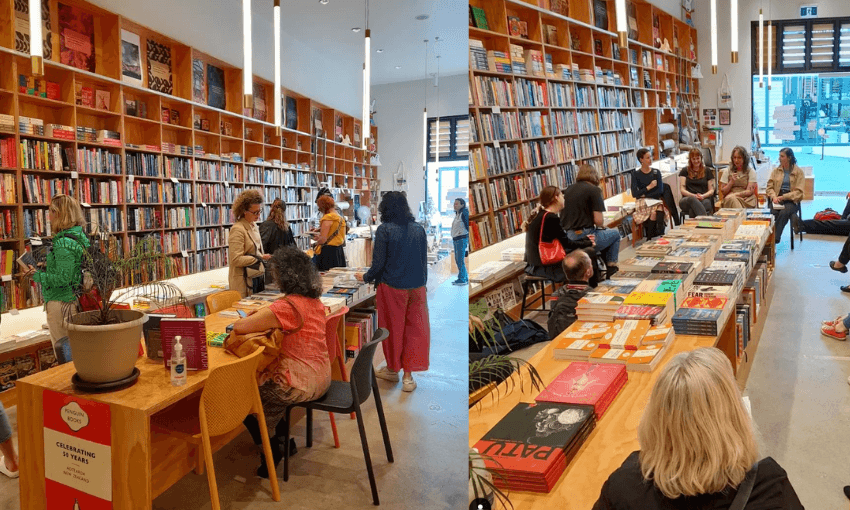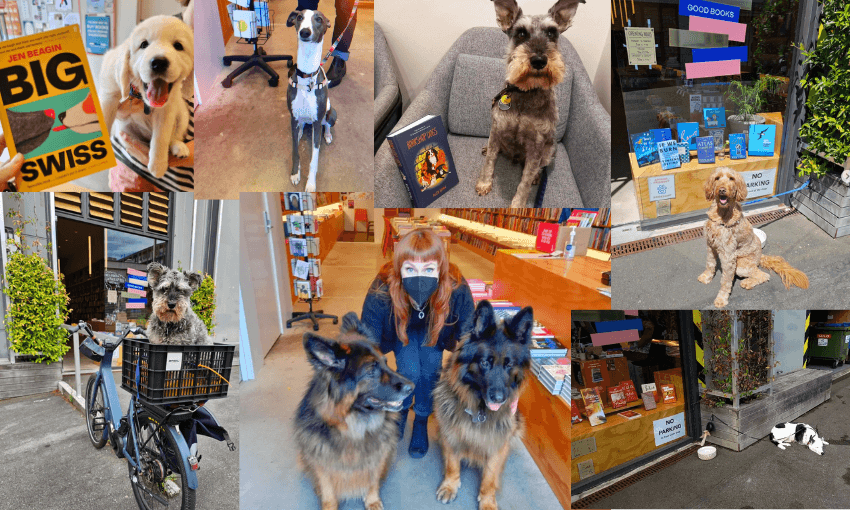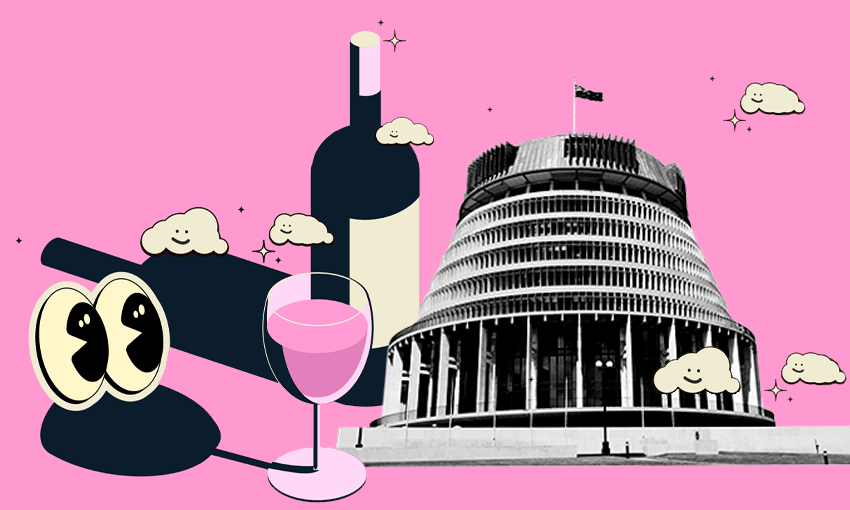Another beloved bookstore in Wellington is closing down. Why – and what does it mean for the industry?
Wellington bookstore Good Books has announced that they will be shutting their doors for good on May 10 this year. “Yes, we’re closing – but it’s a decision we’re at peace with,” said a statement on the Good Books Facebook page. “We have loved owning Good Books. We love our amazing team (present and past), who have made the shop what it is. We love the connections we’ve made with our customers, our reading and writing communities, and our small business neighbours in Te Aro.
“But the economic environment has been very tough lately, as you’ve probably picked up on – and after a lot of discussion, we’ve decided to err on the side of caution and close under our own terms.”
Good Books, which opened in October 2020, is the third bookstore to close down in Wellington in the past five years. In 2023, Vic Books said goodbye after 50 years of operating; and before that Ekor books (incidentally located very close to Good Books) shut down (though for reasons unrelated to economics in this instance). It’s troubling to look back on this Stuff article from 2017 that begins: “The future of independent bookstores in New Zealand is looking bright.”
The online response to Good Books closing is intense and emotional. It’s a business that, perhaps in any other four-year period in recent history, should have thrived: it’s nestled next to Prefab and the cafe’s well-heeled clientele; across the road from posh baby clothes shop Nature Baby and even posher dealer art gallery Hamish McKay; Moore Wilson’s is just up the road. Which is all to say, the shop is surrounded by businesses that attract people who can afford to spend money on books.
Good Books was somewhat tucked away off the street, but still: it was beloved and widely circulated in promotional articles by the likes of WellingtonNZ and Neat Places as an example of a chic-yet-friendly and welcoming, very Wellingtonian, place to commune with books and their champions. Because that is the specific and ineffable nature of a bookshop. They’re more than a place to buy books and stationery and great merch: ardent regulars form long-lasting relationships with booksellers who get to know them and their tastes, like a doctor. Authors launch their book babies there in what are vulnerable and beautiful celebrations of hard work and acts of faith. Tourists connect with New Zealand literature via bookshops and carry the experience and particular flavour of the bookshop they purchased from away with them. They are multi-purpose businesses with socially conscious foundations.
The People
Catherine Robertson and Jane Arthur (both writers) started and managed Good Books. They ushered in a refreshing commitment to being a living wage business and as such held onto loyal staff who are also writers and artists. According to Good Books’ own website, they are the only bookshop in New Zealand to be an accredited living wage employer. When Good Books first started this was big, bold, progressive news. It showed that this was a business that cared for their staff and valued the expertise they brought into the business: everyone who has ever been recommended a book from a bookseller knows there’s a high level of trust imparted in that relationship. They have to get to know their customers in a very short space of time: it’s not an easy transaction but it is the lifeblood of the industry which is, after all, about getting stories into the hands of the people.
They were incredibly supportive of local writers: displaying new Aotearoa releases in their window, and consistently championing under-sung voices. Good Books was exceptionally responsive to the Covid pandemic, having been opened right in the thick of it, and were committed to mask wearing and wearers to protect vulnerable customers and staff.
The Business
When a bookshop closes the publishing sector loses an essential piece of the economic puzzle. There is an extraordinarily close relationship between writer-reader-publisher-bookshop-bookseller-bookshop events. Booksellers can hand-sell books (through recommendations, displays and social media marketing) and make a huge difference in an author’s success. They’re also an employer of writers who rely on part-time work to supplement artistic work. Good Books ran events which facilitated Aotearoa writers to connect directly with their readers, and encouraged conversation: something the industry needs and craves when every book – no matter the genre – is in service of a vision, an idea, a debate.
Good Books launched a Pay it Forward initiative where customers could buy vouchers for “deserving local schools”, Mt Cook School and Titiro Whakamua Hutt Valley Teen Parent School, to spend on books. They also provided Instagram followers with a steady stream of pictures of dogs in the shop, and wholesome reels of bookseller Becs, doing bookish things like packaging books for their subscribers or unboxing the latest titles.
Why people are sad to lose Good Books
A round up of just some of the comments and reactions to Good Books closing says it all:
“I’m beyond sad to hear this, we love what you have done and all you have been to us. You’ve supported so many writers (myself included) and we will bloody miss you so much xxx”
“I loved working there. I love the staff and the commitment to them from the shop. Jane was the best boss I ever had. I loved the customers who treated us not just as people but as friends and experts and wanted to hear our thoughts.”
“This makes me so sad! Visiting the shop and getting recommendations was one of the highlights of my trip to NZ. But good on you all for finishing on your own terms.”
“Thanks for everything you did for me as an author!”
“I’ll miss the good dog photos.”
Where to from here
Capitalism means that if you want things then you have to spend money on them to keep them around. In Wellington that means buying books at your local independent bookshops like The Children’s Bookshop in Kilbirnie, Marsden Books in Karori, Unity Books on Willis Street, Another Chapter in Newtown, Schrödinger’s in Petone, Minerva on Cuba Street.
BookHub is an excellent new online resource: it’s an inventory of books available from indie NZ bookshops so you can enjoy the ease of ordering online and know you’re supporting your local booksellers/therapists/essential members of the publishing community while you’re at it.























Discussion about this post